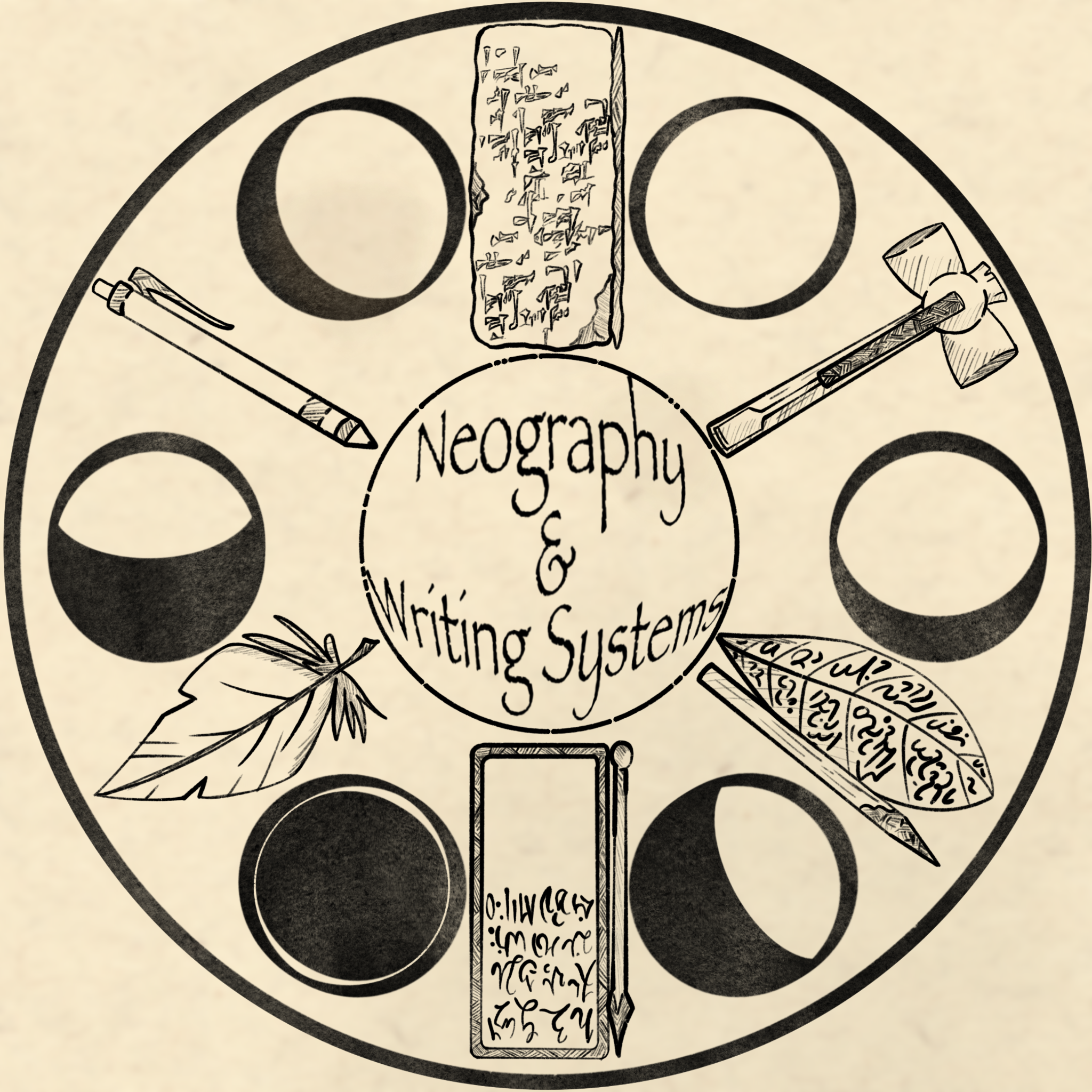Here’s a script i came up with today for an as yet nonexistent conlang that’s entirely hummed.
It’s built around /m/, which can have any tone made from these 5 pitches, and can be creaky or modal. It also features /Ɂ/ and /h/, both of which can appear anywhere in a word or sentence. Tones are written by stacking the pitches on top of each other, and a block of text is read from top to bottom and left to right. When a tone contains more than 1 pitch, they alternate being written on the left and right sides, starting at the bottom on the left. Parts of the pitches can overlap horizontally but the bottommost parts must always be in order.
Two tone sticks (i don’t have a good name for them yet) can be connected horizontally to save vertical space or to write part of a tone as creaky and part of it as modal. I don’t have a way to connect more than 2 sticks, but i could probably make one if it ever comes up. The “keep tone” thing is for lengthening the last pitch of the tone before it. It might be unnecessary since you could just add a connected tone stick of the correct pitch. Creaky voice is indicated by a ring over the tone. Words are separated by a diagonal line through the horizontal bar the whole thing is written on and sentences are started and ended using initial and terminal /Ɂ/ and /h/ or using a little curl as seen in the creaky voice picture.
Sorry if i got the IPA tones wrong. I find them a bit limited and confusing, but that’s probably just because this is my first time working with any tonal language and i’m not used to them yet. I probably won’t make a full language out of this but maybe i’ll reuse the writing system somewhere else.


I second this! It’s extremely unique and I don’t think I’ve ever heard of a conlang where the method of articulation is so different but still very reasonable as a concept, if you’re looking for inspiration I recommend silbo gomero from the canary Islands as it is a whistled form of Spanish.